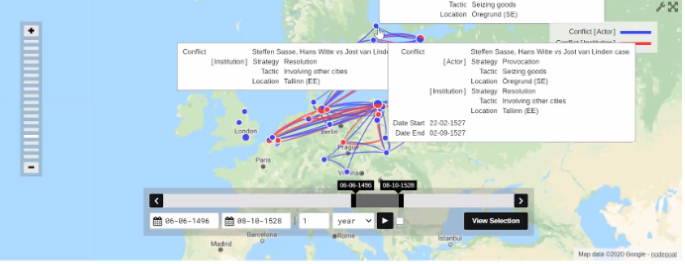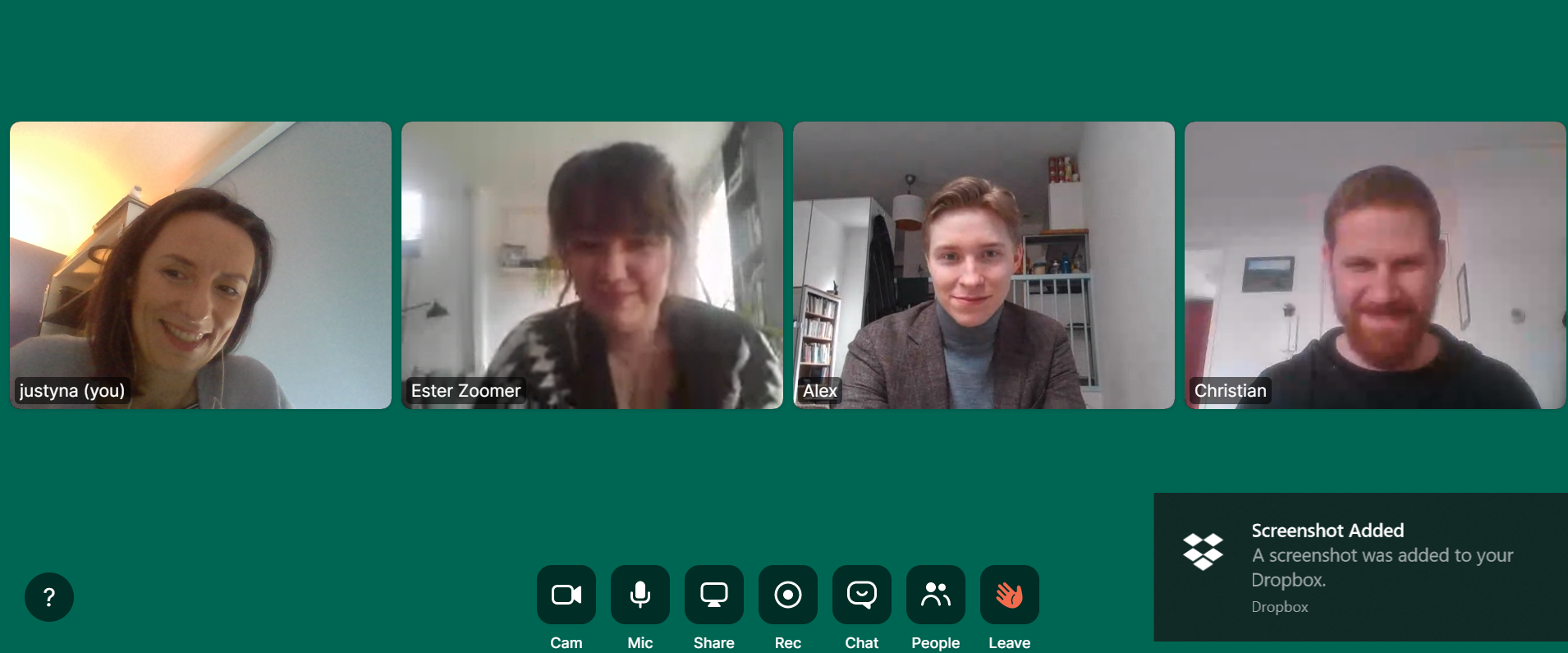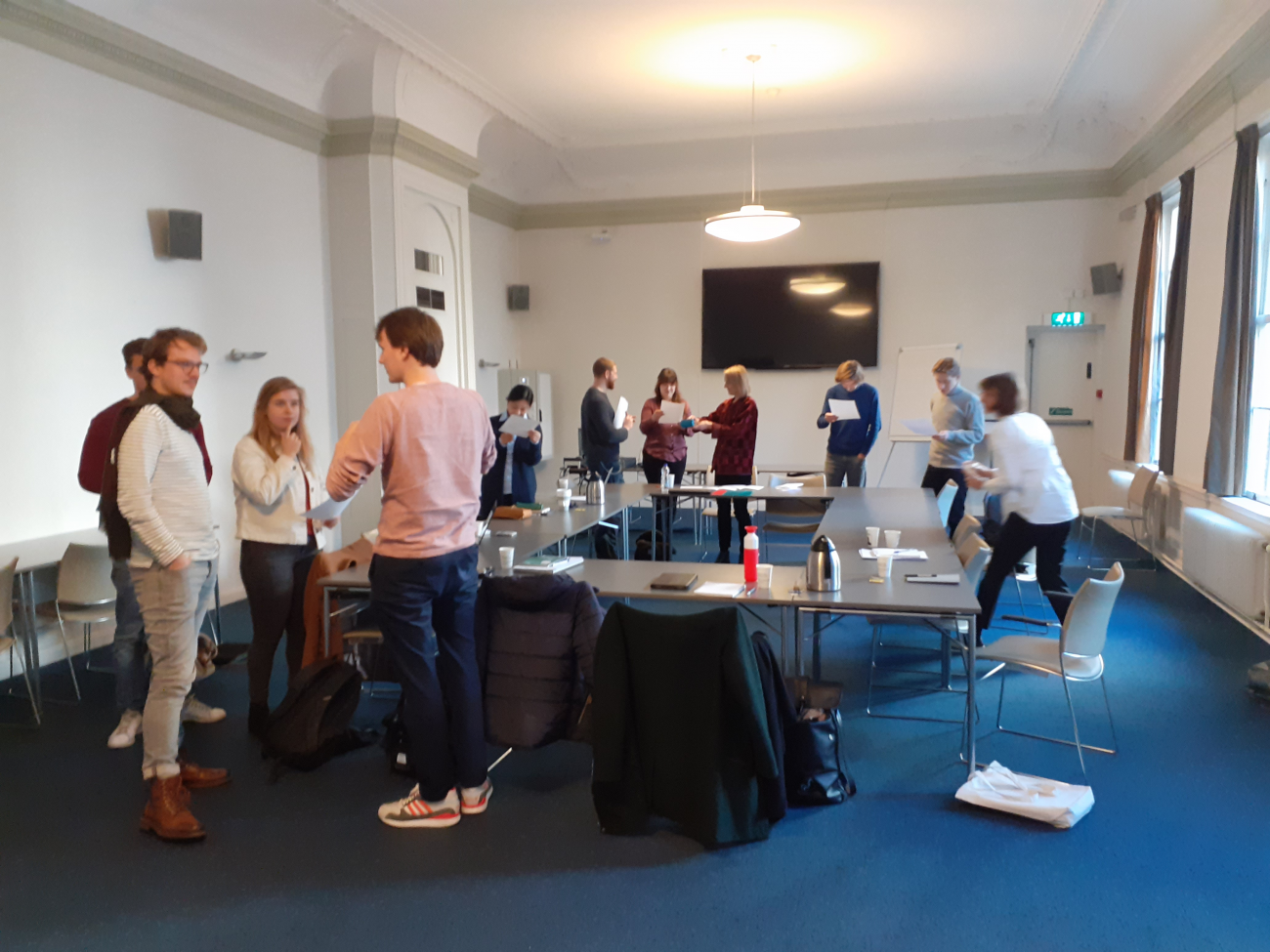Salt Ships Case
Justyna Wubs-MrozewiczVisualization of the salt ships case
Visualization of the salt ships case
UvA historians interviewed about the future: also the premodern perspective is present!
Ilustracje w ‘Sekrecie siedmiu statków’
shutterstock, zdjęcia autorki oraz[....]
•cover: Krzysztof Krawiec, Justyna Wubs-Mrozewicz, based on Pieter Bruegel the Elder, The Met, New York
•p. 11 fragment of view of Motława by Balthasar Friedrich Leizel, Friedrich Antona August Lohrmann, c. 1780, coloured engraving, National Maritime Museum in Gdańsk
•p. 20 Jan van Eyck, the Arnolfini Portrait, the National gallery, London
•p. 23 Gedanum from Civitates orbis Terrarum by Georg Braun, Franz Hogenberg), 1575, engraving, National Maritime Museum in Gdańsk
•pp. 25, 31, 32, 48 Gdańsk during and after WW II, gedanopedia.pl
•p. 37 Frederick II by Hans Knieper and Eric XVI by Steven van der Meulen, Nationalmuseum
•p. 43 St George and the dragon by Bernt Notke, Storkyrkan in Stockholm
•p. 45 fragment of an archival chest by Dariusz Kula, Museum of Gdańsk, Main Town Hall
•p. 50 State Archives in Gdańsk
•p. 52 Margaret of Parma by Anthonis Mor
•p. 53 Sigismund II Augustus by Lucas Cranach
•p. 56 Green Bridge and Gate by Aegidius Dickmann, 1617, gedanopedia.pl
•p. 59 Green Gate, 1687, gedanopedia.pl
•p. 58 Lastadia, Julius Gottheil, 1845 gedanopedia.pl
•p. 60 The Long Market 1880, gedanopedia.pl
•p. 61 Raised terrace by Johann Carl Schultz 1867 gedanopedia.pl
•p. 62 Artus Court by August Lobegott Randt, 1823, gedanopedia.pl
•p. 63 Konstantin Ferber by Nicolaus Andrea, 1586, gedanopedia.pl
•p. 64 Town Hall by Michael Carl Gregorovius, 1832, gedanopedia.pl
•p. 65 Figure on the pinnacle of the Town Hall, based on Jan Gumowski, 1928 (there incorrectly referenced to as John II Casimir Vasa), National Maritime Museum in Gdańsk
•p. 67 entrance to Great Christopher by Dariusz Kula, Museum of Gdańsk, Main Town Hall
•p. 68 on the basis of Pieter Bruegel the Elder, The Met, New York, Justyna Wubs-Mrozewicz
•p. 69 on the basis of the fresco in Great Christopher by Dariusz Kula, Gdańsk Historical Museum, Town Hall
•p. 73 Henry VIII by Hans Holbein, 1540
•p. 75 exterior of the National Museum and the Last Judgement by Hans Memling, 1467-1471, the National Museum in Gdańsk
•pp. 76-77 fragments of the Last Judgement, the National Museum in Gdańsk
•p. 79 cellars and the Great Council Hall, by Dariusz Kula, Museum of Gdańsk, Main Town Hall
•pp. 80-81 Apotheosis by Isaak van den Block, Museum of Gdańsk, Main Town Hall
•pp. 82-83 fresco and archival chest in fresco in Great Christopher by Dariusz Kula, Museum of Gdańsk, Main Town Hall
•p. 89 Georg Giese by Hans Holbein
•p. 97 State Archives in Gdańsk
•p. 96 fresco in Great Christopher by Dariusz Kula, Gdańsk Historical Museum, Town Hall
•p. 104 Panorama of Gdańsk, by Bartholomaus Milwitz, 1620-1630, MNG/SD/281/M, the National Museum
•p. 107 astronomical clock, St Mary’s, Gdańsk
•p. 108 view of Motława by Balthasar Friedrich Leizel, Friedrich Antona August Lohrmann, c. 1780, coloured engraving, National Maritime Museum in Gdańsk

On 17 September and 8 October, our VIDI project (premodern conflict management) is organizing two Digital Humanities webinars, based on the data management program Nodegoat.
Nodegoat is a program for data management for humanists and especially historians. It allows to build source databases for individual projects as well as cooperative ones, and to run network analysis and all kinds of visualizations directly from this database.
The webinar setup is the following:
17 September 10:00-12:30: Nodegoat creators (Pim van Bree & Geert Kessels) will give a general introduction of the features and possibilities, and our project team will show some examples on the basis of our work, and we will talk about our experience so far.
8 October 10:00-12:30: During the second webinar you can work with the program yourself – with online advice and feedback from the creators and the chat. You can try using the program by making the first steps towards setting up a database if you have never done it; if you have, you can adapt your current data model to see how it would work in Nodegoat, or you can simply use an existing database/data model and play with a case study etc. We will be there to help.[....]
Now also available as paperback: The Routledge Handbook of Maritime Trade around Europe 1300-1600Commercial Networks and Urban Autonomy, ed. by Wim Blockmans, Mikhail Krom, Justyna Wubs-Mrozewicz

We have switched to online project meetings, article writing and very much appreciating the sources we have already gathered! Now they can be entered in our new nodegoat database. We have been developing the data model for our project in the last months.
Link to the event.

To understand a past society, historians have to unravel the norms that steer human behavior and interaction, but they also have to consider how people defy those norms in their everyday practice. On 20th November 2019, Sheilagh Ogilvie (University of Cambridge) was invited to follow up a lecture on her new book The European Guilds: an Economic Analysis with a masterclass for PhD candidates and postdocs from three research projects at the Amsterdam School of Historical Studies. (This project, https://www.freedomofthestreets.org/ as well as http://www.inventionoftherefugee.com/).
In The European Guilds, as in so much of her work, Ogilvie investigated why guilds dominated European markets for centuries, despite systematically causing economic and social harm. For the subject of this masterclass, she chose to focus on the interplay between norm and practice. That interplay often takes center stage in her own analysis, explaining how guilds failed in practice to live up to their admirable stated goals such as providing training, quality control, and innovation.
The masterclass’ participants work on projects ranging from gender relations in urban space to the construction of territory in medieval Brabant, and from Jewish transnational advocacy to conflict management and decision making in Hanseatic cities. When confronted by such a variety of subjects it can be a tricky undertaking to find a common theme for discussion without lapsing into catch-all buzzwords. Norm and practice, however, turned out to be an excellent vantage point from which to discuss these heterogeneous projects, tackle shared obstacles, and broaden our conceptual horizons. Ogilvie did an excellent job at leading and steering the conversation; uncovering unexpected links between each of the research topics.
One of the prime questions tackled was how gender norms shape and restrict access to urban spaces, and what it means if such norms are breached in everyday behavior. If, for instance, washerwomen structurally take in laundry in places where the law forbids it, should we consider it a practice in defiance of a norm, or should we argue that it was the norm to go against this law? In other words, are norms defied by practices or by other, conflicting norms?[....]
On Wednesday 13.03.2019 there will be a seminar on the concept on conflict in the theory of Georg Simmel. We will combine premodern and modern perspectives. The seminar will be coordinated by Justyna Wubs-Mrozewicz and Bram Mellink.
It’s open to PhD students, MA students and BA students, please register: j.j.wubs-mrozewicz@uva.nl.
Details: 10-13 (+ lunch), University Library, Amsterdam (Belle van Zuylenzaal)